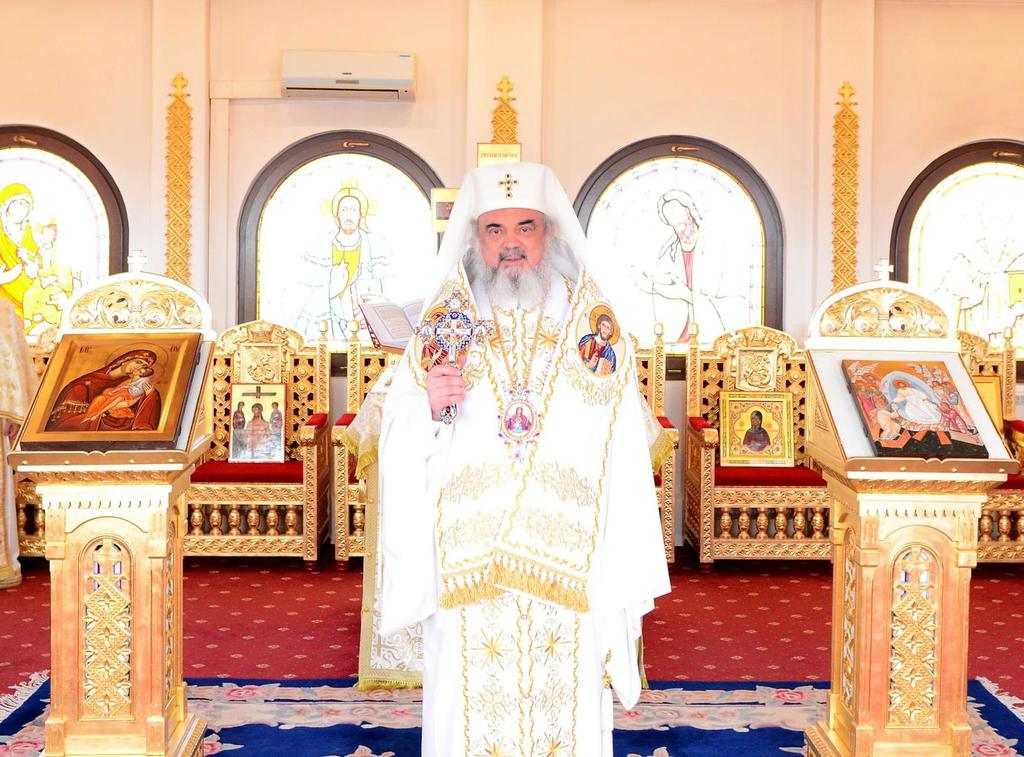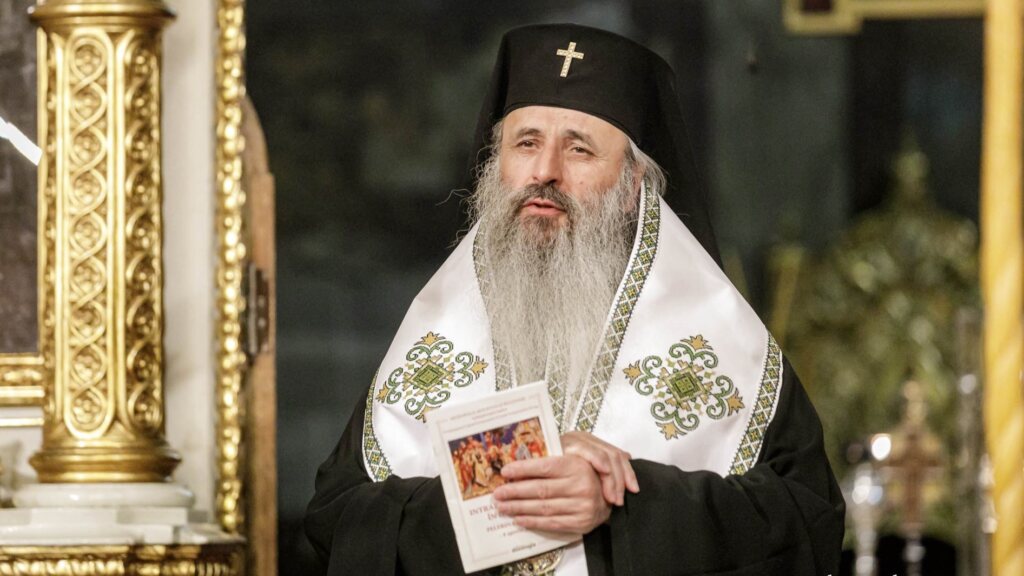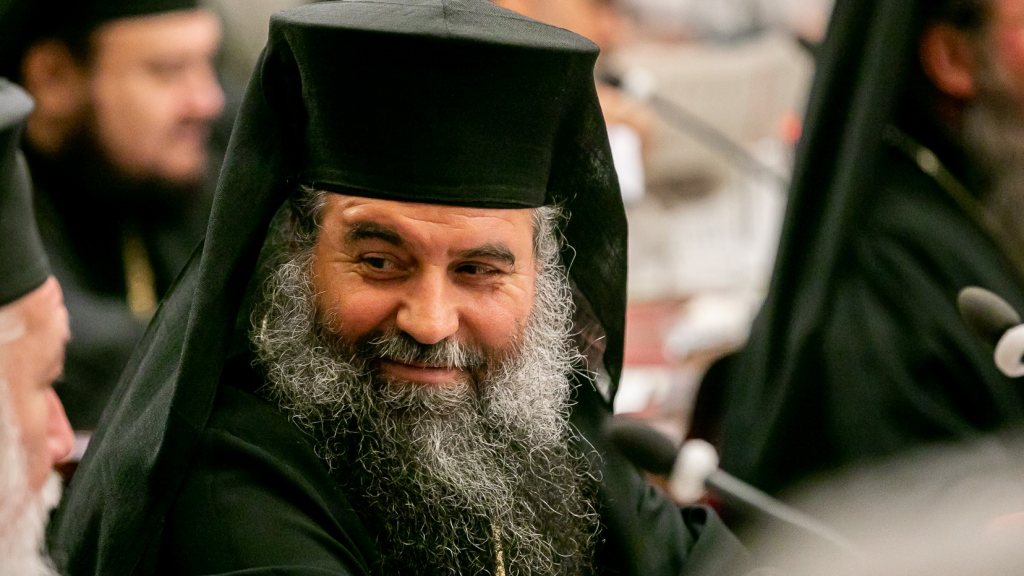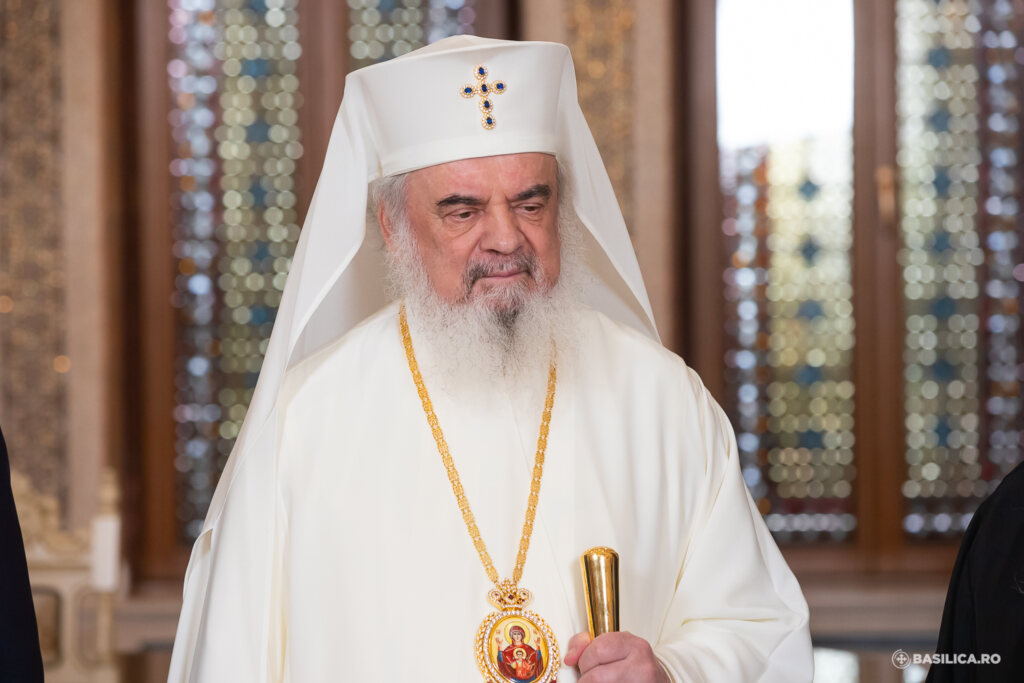Today, 8 March 2015, the Orthodox Church is on the 2nd Sunday of the Lent, of Saint Gregory Palama. The Church scheduled the Evangelical parable of Saint Mark the Evangelist 2:1-12, for this Sunday, on the Healing of the paralyzed man of Capernaum, as well as the Evangelical parable of Saint John 10:9-16.
Son, your sins are forgiven
While referring to the wonder of the healing of the paralysed man from Capernaum in the sermon delivered in the chapel of the Patriarchal Cathedral dedicated to Saint Gregory the Enlightener, His Beatitude Daniel, Patriarch of the Romanian Orthodox Church showed that in the case of the paralysed man of the Gospel, Jesus Christ, our Saviour heals first of all his soul, as he was suffering because of his sins, and then He also heals his body when He tells the paralysed man: “Stand up, and take your mat and go to your home!”
“Jesus Christ, the only perfect Father Confessor and Doctor to heal the sick humankind, shows us that both the soul must be healed of sins and the body of diseases. We do not know what sins the paralysed man committed, but we see that Christ, the Father confessor and shepherd of souls keeps the secret of the human person in distress and does not judge the sinful man before helping him if he wants healing or salvation. He only tells the sick man: Son, your sins are forgiven”; He does not say what sins, when, where and why they were committed. We only learn that Christ, the Saviour-Father confessor, healer of souls, releases the sick man from a dark hard past, to offer him a new present, a new beginning in his life. When Christ-the Father confessor heals somebody of sin and disease, He does not humiliate the sinful man with reproaches, but heals him directly and discreetly without judging or revealing his sins, not to diminish his human dignity in front of the community he belongs to. The relationship between the spiritual father and spiritual son which we see in the Gospel of the healing of the paralysed man of the 2nd Sunday of the Lent urges us to repentance and healing of the sin sickness, to healing our soul of its paralysis or weakness caused by the sins committed, known or not by other people, but known by us and especially by the Holy Omniscient God”, His Beatitude said.
Prayer for other people and helping them shows us the mystery of the Church-communion
The Gospel of the 2nd Sunday of the Lent also shows us that Christ, our Lord, forgives the sins and heals the sick taking also into account the faith of those who bring the sinful sick man to Him, His Beatitude also said. “The Gospel according to Saint Mark the Apostle says: “When Jesus saw their faith, he said to the paralytic: Son, your sins are forgiven!”. Thus, we see how great and useful other people’s faith is for us, not only our personal faith. When our faith diminished, when our prayer thinned out, when our soul is paralysed by sin, the prayer and presence of those who love us and whose faith is stronger than ours is very useful, namely of those whose prayer is more ardent than ours, who have more diligence than we, and whose spiritual good health is better than ours. Here is the mystery of the Church. These four nameless men represent the serving merciful Church, who prays not only for those present at her prayers, but also for the sick, poor, lonely, imprisoned, travellers, for the humans’ good health and salvation and for the peace of the whole world. The Church prays for all those who need God’s help and mercy. This is why, every one of us must pray not only for his/her own good health, but also for some other people’s good health, especially for those who can no longer pray for themselves. We also see how useful it is to bring the sinner and sick to the house where Christ is, to His Church, namely all those who need the forgiveness of their sins and healing of their diseases”.
Saint Gregory Palamas is one of the greatest theologians of the Orthodox Church
The Patriarch of Romania has also shown that the 2nd Sunday of the Lent of the Holy Easter Saint Gregory Palama is remembered. This Sunday has had his name since 1368, when this great teacher of hysichasm was canonised.
“Saint Gregory Palama is one of the greatest theologians of the Orthodox Church. He lived at the end of the 13th century and first part of the 14th century, more exactly between 1296 – 1359. He passed away in 1359, the year when the Metropolitanate of Wallachia was set up. Saint Gregory Palama lived at Mount Athos as monk, whereabouts Prodromu Romanian skete is today, and later on, in 1347, he became Archbishop of Thessaloniki. He is the teacher of the prayer stemming from the uncreated light, thus the theologian of the uncreated never setting light of the Kingdom of God, teaching that when God wills, He allows the saints to foretaste and spiritually see this uncreated never setting light or glory ever since their life on the earth. This light was shown to Saints Peter, James and John too at the Transfiguration of Jesus Christ, our Saviour, at Tabor Mount”, the Patriarch of Romania also said.
Saint Gregory Palama – teacher of the never setting light and glory
“The Church scheduled the 2nd Sunday of the Lent for remembering Saint Gregory Palama – the teacher of the light and never setting glory – in order to show us that the right faith, solemnly celebrated on the Orthodoxy Sunday, is the faith through which the heaven is opened for us for receiving the never setting light and eternal life of the Kingdom of God. Only if we have the right faith and living we can enlighten our soul and body, communicating ourselves with the saving deifying divine grace, to get the heavenly glory of the Kingdom of the Most Holy Trinity”, the Primate of the Romanian Orthodox Church also said.
On 15 March 2015, the Orthodox Church will be on the 3rd Sunday of the Lent, dedicated to the Holy Cross.






